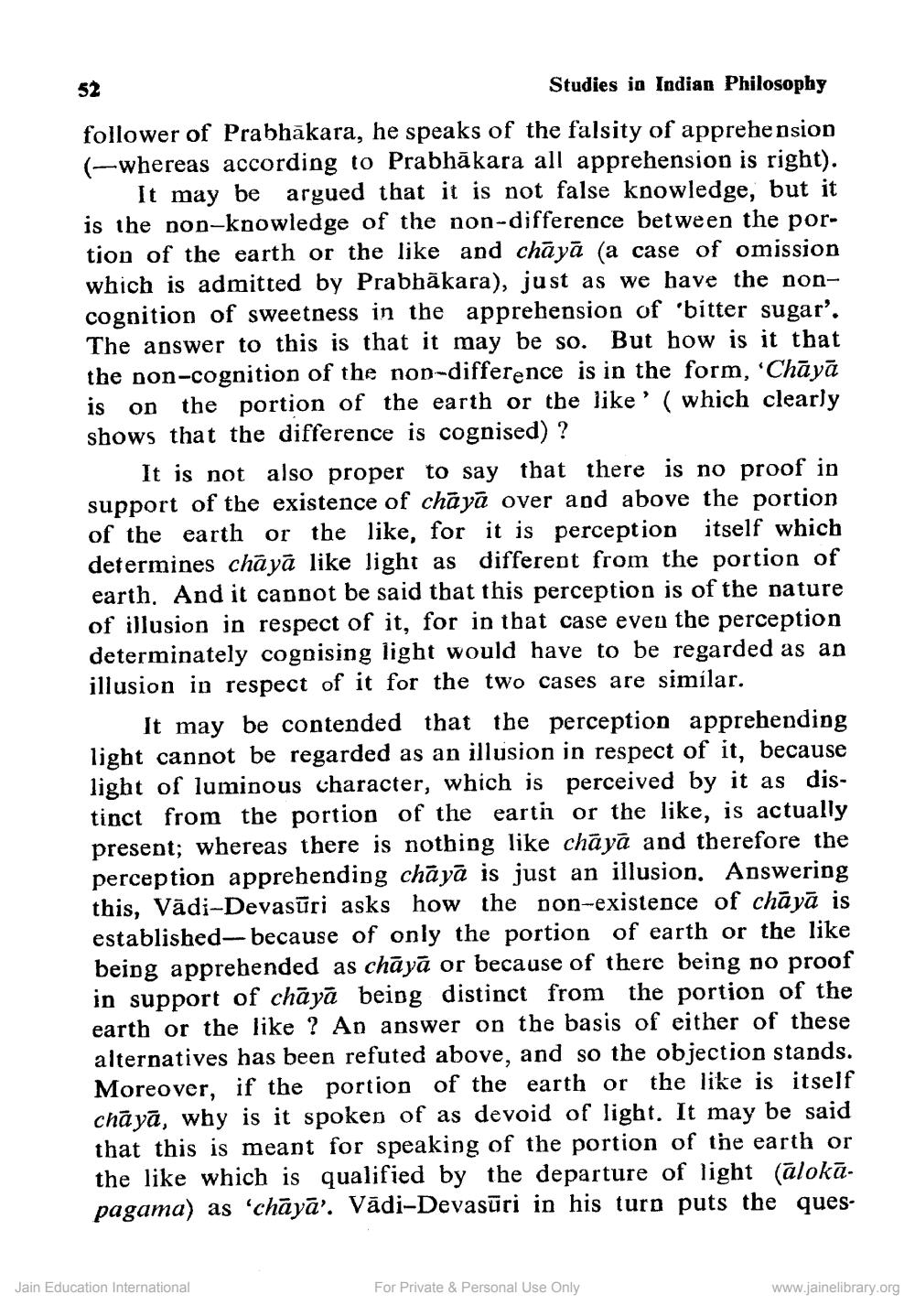________________
52
Studies in Indian Philosophy follower of Prabhākara, he speaks of the falsity of apprehension (-whereas according to Prabhākara all apprehension is right).
It may be argued that it is not false knowledge, but it is the non-knowledge of the non-difference between the portion of the earth or the like and chāyā (a case of omission which is admitted by Prabhākara), just as we have the noncognition of sweetness in the apprehension of 'bitter sugar'. The answer to this is that it may be so. But how is it that the non-cognition of the non-difference is in the form, 'Chāyā is on the portion of the earth or the like' (which clearly shows that the difference is cognised)?
It is not also proper to say that there is no proof in support of the existence of chāyā over and above the portion of the earth or the like, for it is perception itself which determines chāyā like light as different from the portion of earth. And it cannot be said that this perception is of the nature of illusion in respect of it, for in that case even the perception determinately cognising light would have to be regarded as an illusion in respect of it for the two cases are similar.
It may be contended that the perception apprehending light cannot be regarded as an illusion in respect of it, because light of luminous character, which is perceived by it as distinct from the portion of the earth or the like, is actually present; whereas there is nothing like chāyā and therefore the perception apprehending chāyā is just an illusion. Answering this, Vādi-Devasūri asks how the non-existence of chāyā is established because of only the portion of earth or the like being apprehended as chāyā or because of there being no proof in support of chāyā being distinct from the portion of the earth or the like ? An answer on the basis of either of these alternatives has been refuted above, and so the objection stands. Moreover, if the portion of the earth or the like is itself chāyā, why is it spoken of as devoid of light. It may be said that this is meant for speaking of the portion of the earth or the like which is qualified by the departure of light (ālokā. pagama) as 'chāyā'. Vădi-Devasūri in his turn puts the ques.
Jain Education International
For Private & Personal Use Only
www.jainelibrary.org




